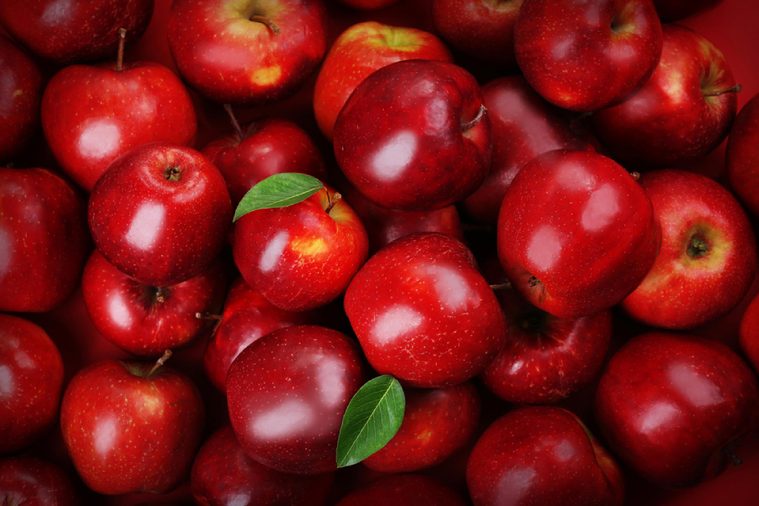
Apples
This fruit bowl staple boasts so many nutritional perks, it’s hard to even keep track of them all, so we rounded up all the health benefits of apples. Apples contain quercetin, a powerful antioxidant that has been shown to protect brain cells from degeneration and may do the same in humans. Their high natural fiber content may help protect against colon cancer. And, of course, these healthy foods are heroes for your heart. Adults who eat apples are 37 percent less likely to have high blood pressure, and one group of researchers found that women who ate at least one apple a day were 28 percent less likely to develop diabetes than those who ate none. Learn more about what makes apples so good for you.
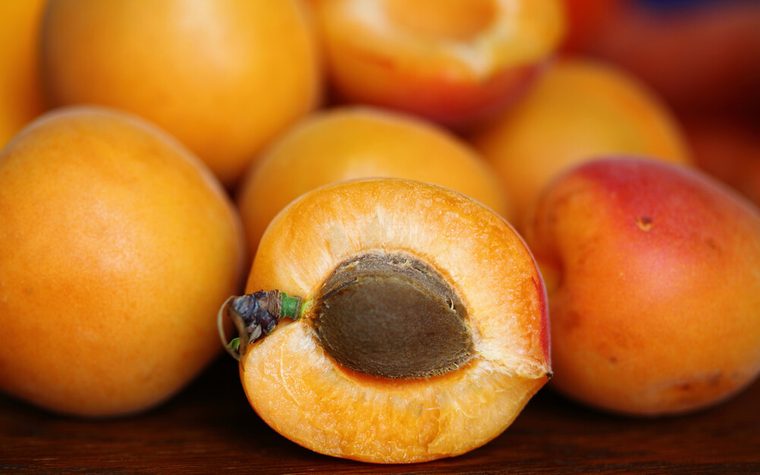
Apricots
The deep color of these healthy foods indicates the presence of carotenoids, specifically the antioxidant beta-carotene, which are linked with cancer prevention. Apricots are also high in iron and potassium, a mineral essential for proper nerve and muscle function that also helps maintain normal blood pressure and balance of body fluids.
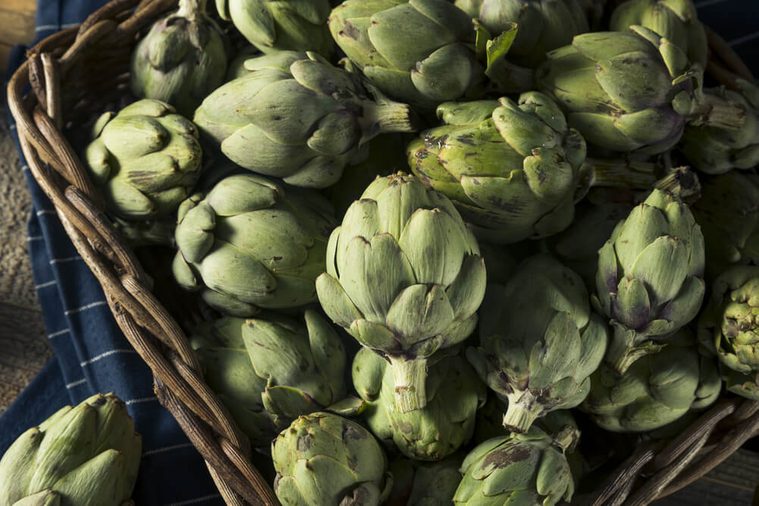
Artichokes
Cutting back on your sunbathing time isn’t the only way to lower your risk of skin cancer. This bulbous veggie is a great source of silymarin, an antioxidant that may help prevent the disease. Check out these 30 other foods that can help fight cancer.
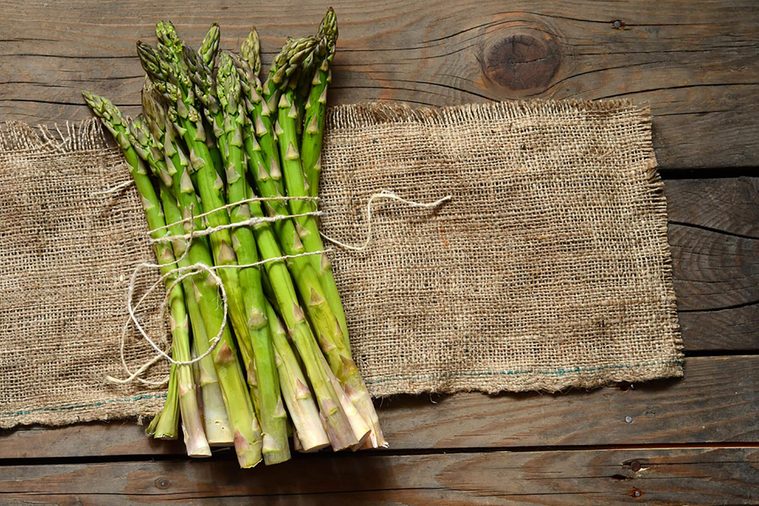
Asparagus
Yes, asparagus can make your urine stinky, but these spears are worth working in to your diet. Asparagus contains the natural diuretic asparagine, which helps your body get rid of excess fluid and salt. It’s also high in folate, a B vitamin that helps combat stress.
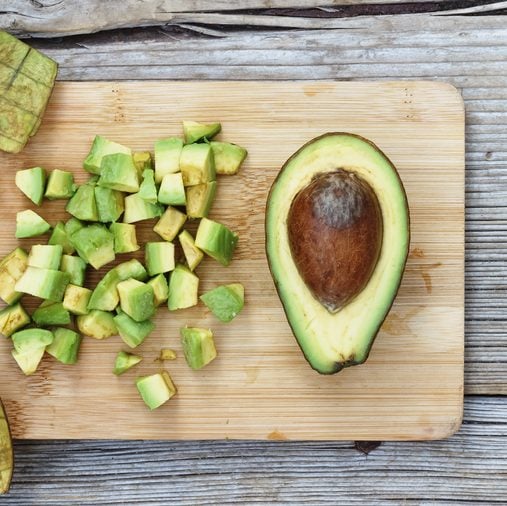
Avocados
This creamy fruit contains 60 percent more potassium per ounce than bananas and is an excellent source of heart-healthy monounsaturated fat. Avocados are also rich in plant sterols, shown to lower cholesterol. Add some avocado slices to a sandwich, and the fat will slow the digestion of the bread, easing its impact on your blood sugar levels. And those are just a few of the avocado’s powerhouse benefits.
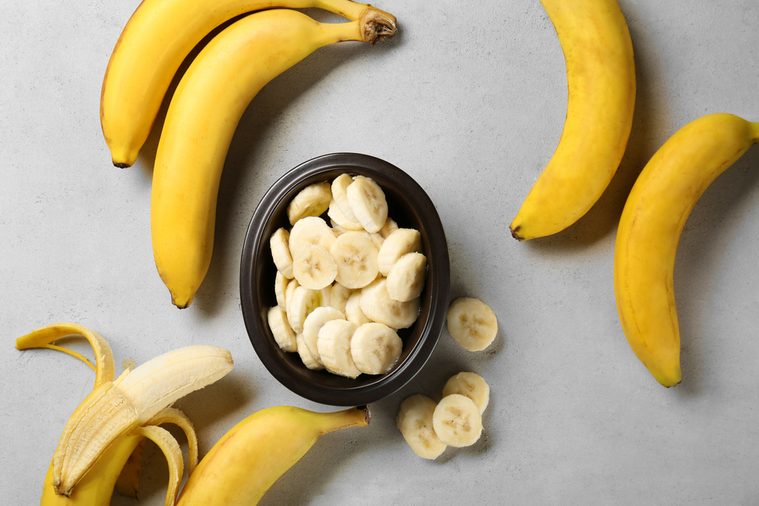
Bananas
We’re calling it: The banana is a food genius. It comes in its own sealed, portable container (also known as a peel). One fruit has about 100 calories and is loaded with potassium and fiber while containing no fat. Bananas also boast tryptophan and 30 percent of your day’s vitamin B6, which helps the brain produce mellowing serotonin so you get through the day with less stress.
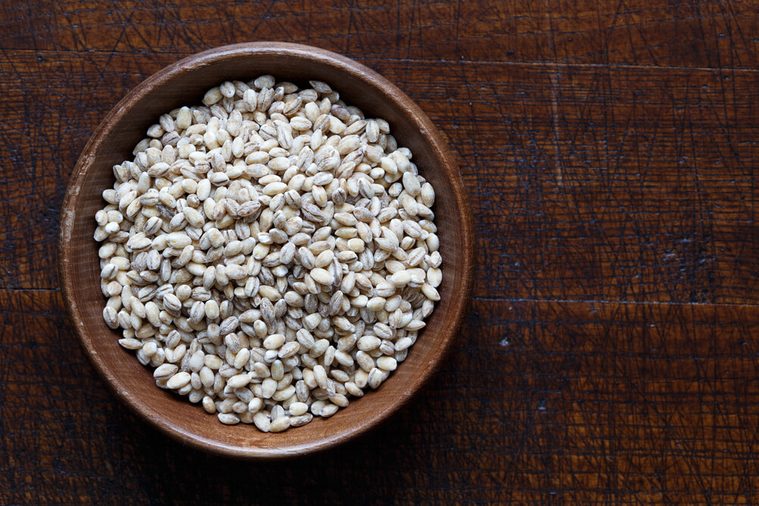
Barley
Everyone goes straight to quinoa when they want a healthy grain, but this “Grandma” side dish is seriously underrated. Barley’s big bonus is its soluble fiber, which has been shown to lower cholesterol and cut the risk of heart disease. Barley’s fiber is found throughout the grain, so even refined products like barley fiber are beneficial. The niacin, vitamin B3, in unrefined barley can also protect against cardiovascular disease. Check out these tips to make your favorite superfoods even healthier.
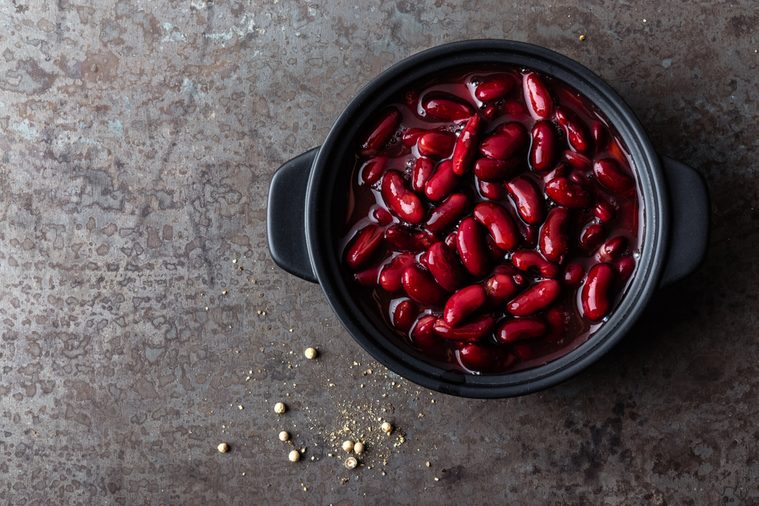
Beans and legumes
The humble bean is a nutritional powerhouse in disguise—high in protein, fiber, B vitamins, iron, potassium, and other mineral, while low in fat. Legumes contain a range of disease-fighting phytochemicals, including isoflavones, which are especially protective against heart disease. Studies find that about 10 grams of soluble fiber a day—the amount in a half to 1.5 cups of navy beans—reduces LDL cholesterol by about 10 percent. Plus, beans come with all of these other amazing health benefits.
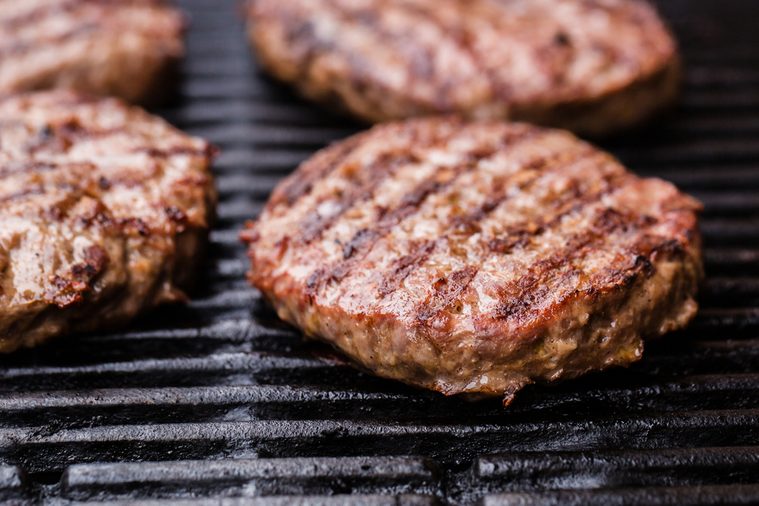
Lean beef
Many kinds aren’t the heart attack-causing culprits they’ve been made out to be and rightfully earned their place in the healthy foods community, especially if you stick to a healthy three-ounce serving. Many cuts are 20 percent leaner than they were a decade or so ago. Beef is a good source of iron, which your body uses to carry oxygen in the blood. And a three-ounce serving provides more than 25 percent of your required selenium, a trace mineral essential in a healthy immune system.
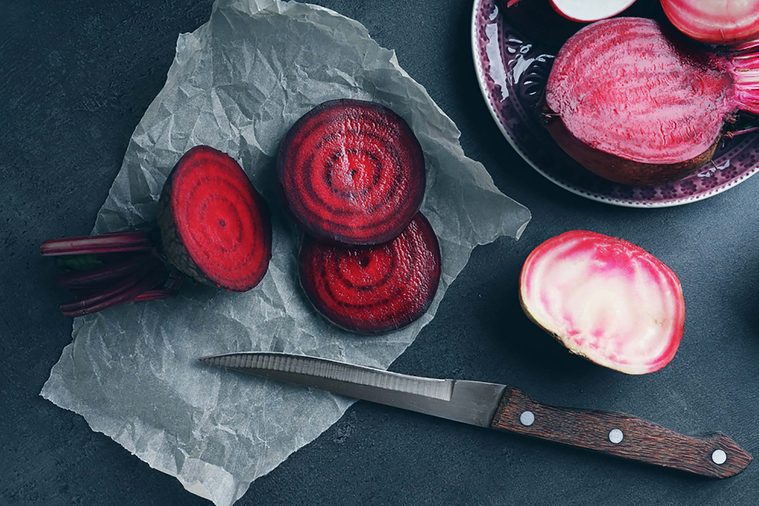
Beets
Next time you see a beet salad on the menu, order it and do your ticker a solid. Beets are a wonderful source of folate and betaine, nutrients that together help to lower blood levels of homocysteine, which causes artery-damaging inflammation. They’re packed with potassium—even more than bananas, in fact. Beets also help to produce nitric acid, which increases blood flow throughout your body. MRIs done on older adults showed that those who ate a high-nitrate diet (including beet juice) had more blood flow to the white matter of their brain’s frontal lobes, which could affect dementia risk. Here are some more tricks to ordering healthier at restaurants.
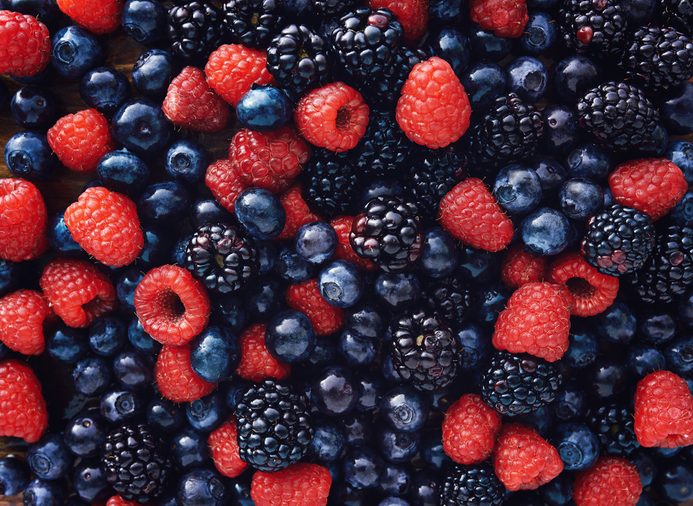
Berries
Whether blackberries, blueberries, strawberries, or raspberries, these sweet, juicy fruits are powerhouses among healthy foods. Their high antioxidant levels neutralize free radicals, unstable compounds that can damage cells and lead to such diseases as cancer. Berries’ valuable antioxidants can also slow down brain aging and enhance your memory. Finally, they’re a boon to your heart. Adults who ate about a cup of berries a day lowered their blood pressure and raised their good HDL cholesterol. These are the antioxidant-rich fruits and vegetables you should be eating.
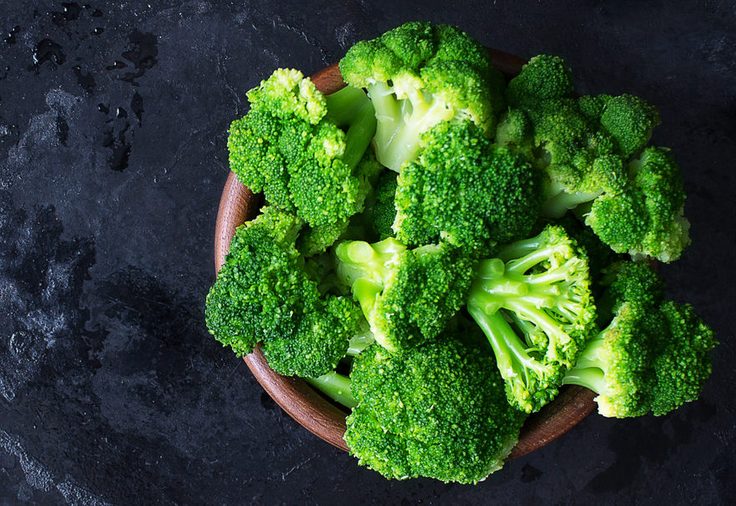
Broccoli
One of the most nutritious and studied vegetables, good ole broccoli has an abundance of vitamins, minerals, and other disease-fighting substances. Though all cruciferous veggies are cancer-fighting superfoods, broccoli seems to be the most protective. One study of women in China diagnosed with breast cancer found that those who consumed the most cruciferous veggies were 62 percent less likely to die and 35 percent less likely to have a recurrence compared with those who ate the least. Broccoli’s vitamin K also helps boost bone health. Here are some more foods every healthy woman needs in her diet.v
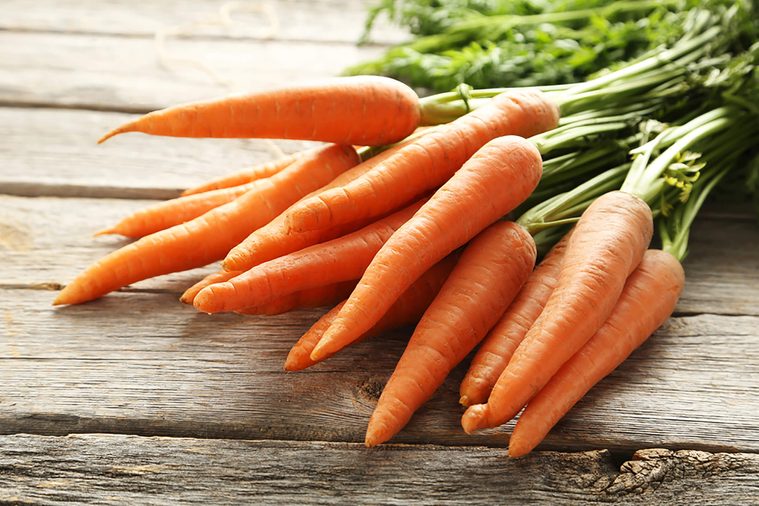
Carrots
Bugs Bunny must have been the picture of health. Carrots are our most abundant source of beta-carotene, an antioxidant the body can convert to vitamin A—a nutrient essential for healthy hair, skin, eyes, and bones. However, it’s best to get this nutrient through food; the beta-carotene supplement could increase your risk of lung cancer. A U.S. government study found that volunteers who ate about one cup of carrots a day had an average 11 percent reduction in their blood cholesterol levels after only three weeks.
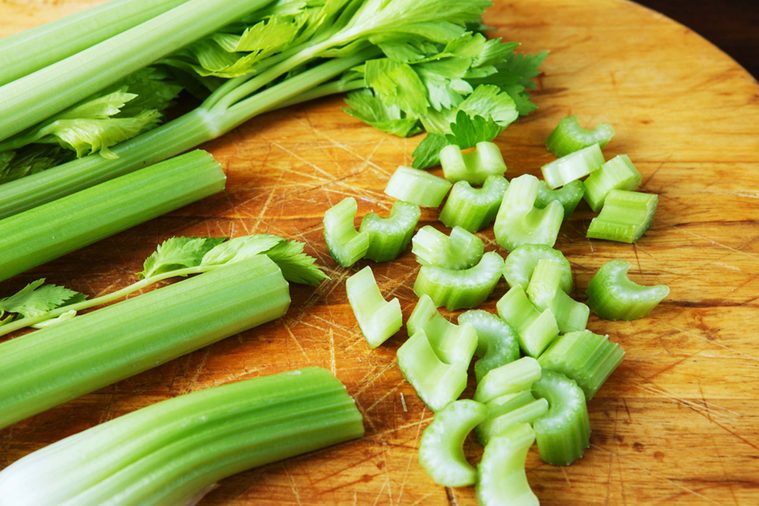
Celery
Low in calories, celery is a dieter’s go-to dip vehicle. But this underrated veggie doesn’t have zero nutrition, as many people think. Celery is a good source of potassium, a mineral that aids muscle function and offsets some of sodium’s damaging effects on blood pressure. And phytochemicals in celery help destroy benzopyrene, a carcinogen that occurs in foods cooked at a high temperature.
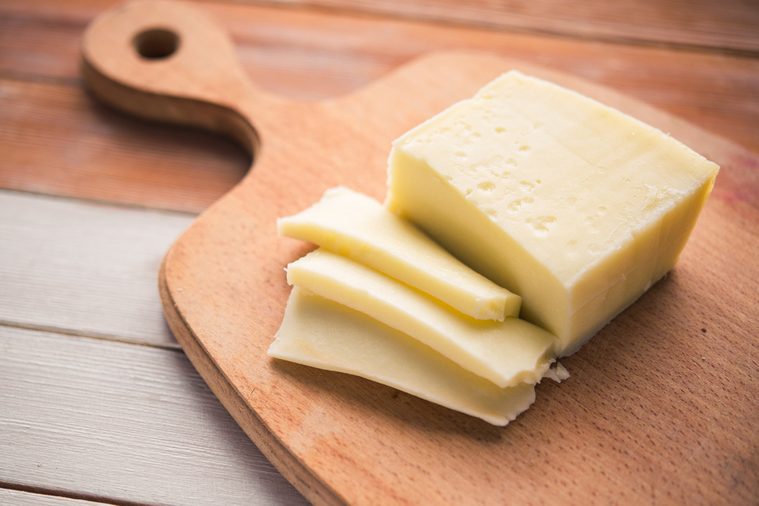
Cheese
We can’t imagine a life without cheese—so thank goodness this savory, gooey, crumbly snack boasts some serious health cred. According to one study, women who get plenty of calcium from dairy products—including cheese—have a significantly lower risk of developing metabolic syndrome, which is linked to heart disease and diabetes. Combating sleeplessness and inflammation are also reasons to eat dairy every day. In moderation, cheese provides good amounts of calcium and protein necessary for bone and muscle strength. Even your teeth love cheese! The natural fats coat your teeth and act as a barrier for cavity-causing bacteria. Learn more about why eating cheese every day can be good for you.
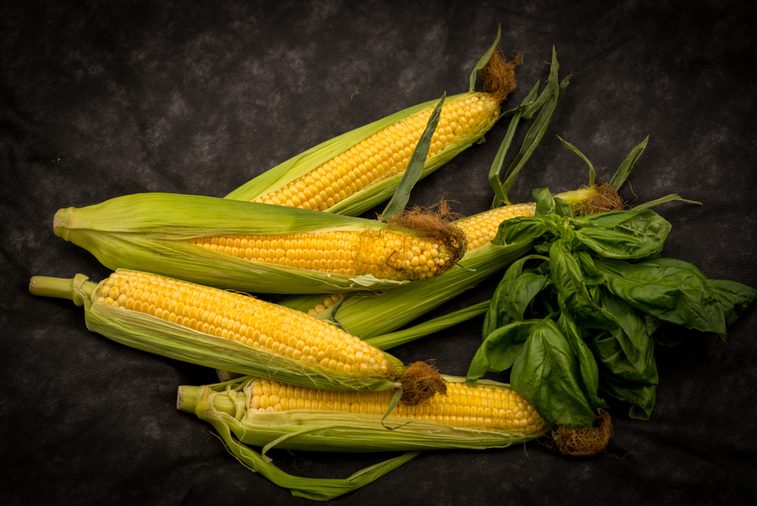
Corn
This grain gets a bad rap for being overly used in processed foods, but eaten on the cob or as popcorn, corn is probably healthier than you realize. Cooked sweet corn contains a compound called ferulic acic, which may inhibit cancer-causing substances. Those yellow kernels are also a good source of lutein, a powerful antioxidant that may help lower the risk of age-related macular degeneration, a common cause of blindness in older adults.
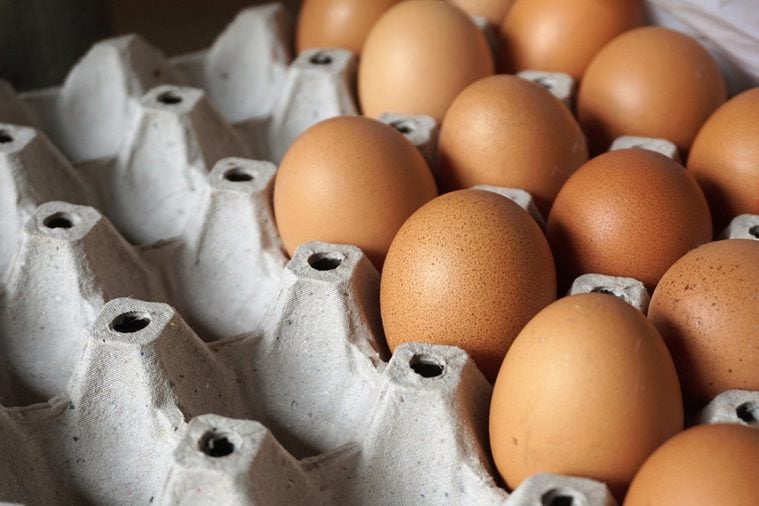
Eggs
When you think about eggs and health, the first thing that comes to mind is their high cholesterol content. But it turns out that they don’t actually contribute to high blood cholesterol. In fact, eggs are an inexpensive source of many nutrients and come packaged in one of nature’s best designs: they’re portable, versatile and delicious. The zinc and iron in eggs can help your hair shine and your nails resist chipping. Eggs contain a compound called choline, which helps to move cholesterol through the bloodstream, as well as aiding fat metabolism and repairing some types of neurological damage. Yolks are one of the few foods that contain vitamin D, which helps reduce the risk of some cancers and heart disease, can boost the immune system, and fight diabetes. Here are some more common food health myths that just aren’t true.
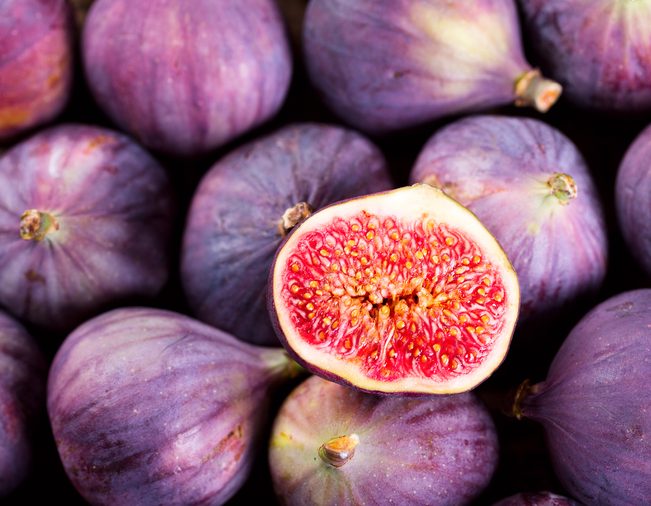
Figs
Whether paired with cheese or tossed in salad, figs are a surprising health booster. They’re very high in fiber, potassium, manganese, and a rare fruit source of calcium, which aids in the electrical activity of the heart. And many people with digestive issues are grateful for figs’ natural laxative effects, which can help relieve chronic constipation.
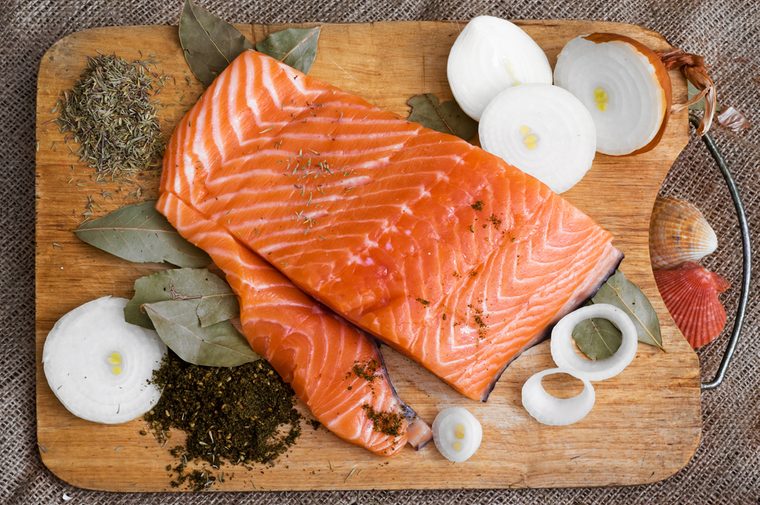
Fish
A forkful of fish is a goldmine of concentrated nutrients. The fats are particularly high in good-for-you polyunsaturated kinds and all fish are rich in protein, niacin, vitamin B12, zinc, magnesium and more. Eating fish three times a week has been associated with a significant decrease in the rate of heart disease. The omega-3 fatty acids in fish oils decrease the stickiness of blood platelets, making it less likely to form clots. (A study of more than 43,000 men showed that those who ate fish about one to three times a month were 43 percent likely to have the most common type of stroke, which is caused by blood clots). Fish’s omega-3s also reduce inflammation of the artery walls and lower triglyceride levels.
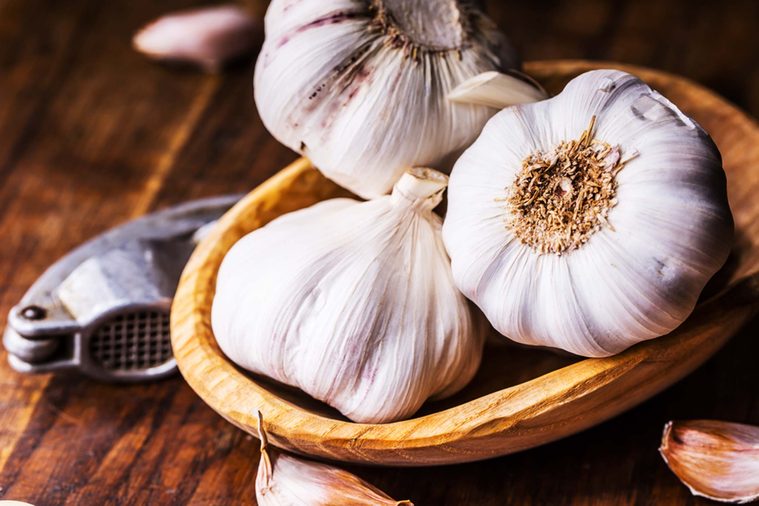
Garlic
This pungent herb isn’t just about making Italian fare taste sensational. Garlic has so many powerful healthy properties, it’s practically medicinal. Garlic can reduce blood pressure in those with high blood pressure by as much as 7 to 8 percent. Garlic also seems to reduce hardening of the arteries. Garlic, too, contains compounds that act as powerful natural antibacterial, antiviral, and antifungal agents. It may be as effective against certain fungi as antifungal medications. Watch out for these surprisingly unhealthy foods you might actually want to avoid.
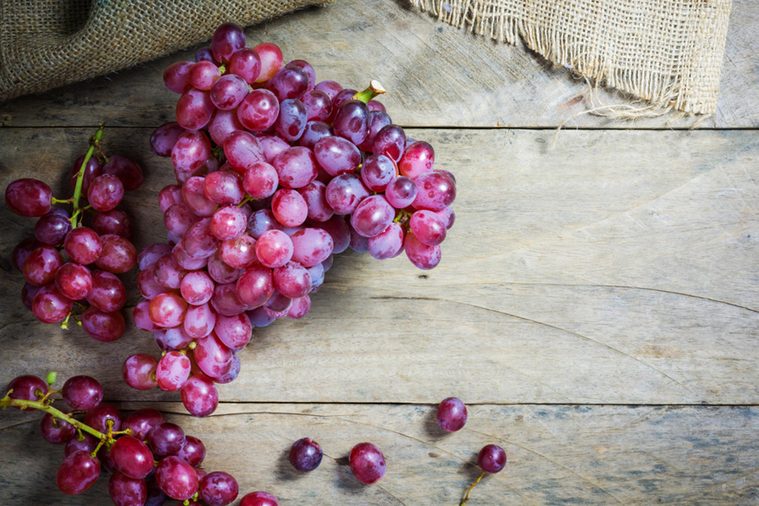
Grapes
Small fruits that pack a big disease-fighting punch, grapes contain quercetin, a plant pigment that might regulate blood cholesterol levels and reduce the action of clot-forming platelets. The skin of red grapes contains resveratrol, a potent chemical linked to a reduction in cancer, heart attack, and stroke. Grapes also contain ellagic acid, thought to protect the lungs against environmental toxins.
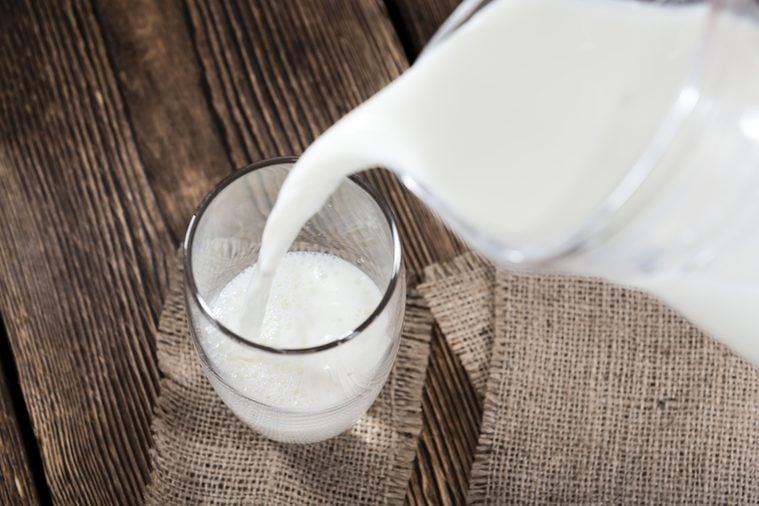
Milk
Yes, milk’s high calcium levels do a body good, like naturally burning away fat. But your milk mustache isn’t just protecting your bones from diseases like osteoporosis. Two Harvard studies found that people who made dairy foods part of their daily diets were 21 percent less likely to develop insulin resistance and 9 percent less likely to develop type 2 diabetes. These are the “healthy” food habits you might actually want to ditch.
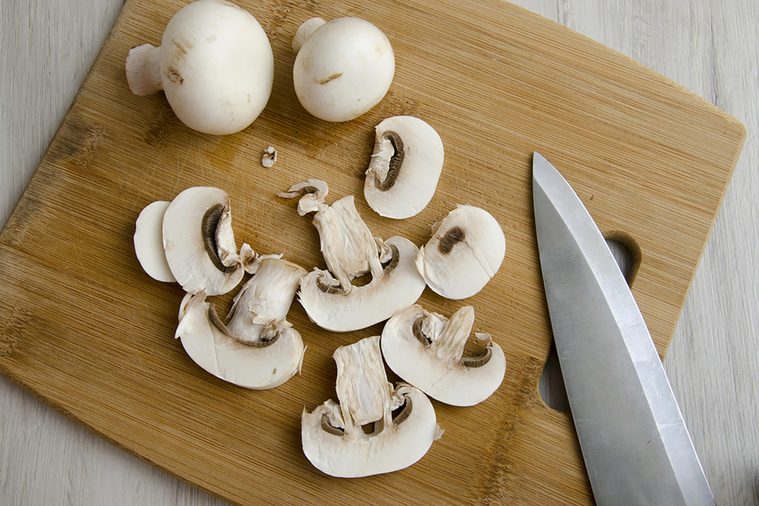
Mushrooms
These fungi are one of the best plant-based sourced of niacin, a vitamin that can help reduce the risk of heart disease and atherosclerosis. Three ounces of portobello mushrooms provide almost 20 percent of the daily niacin requirement. These and white mushrooms are good sources of selenium, which may help prevent prostate cancer. The Baltimore Longitudinal Study of Aging found that men with the lowest levels of selenium in their blood were four to five times more likely to have prostate cancer than men with high selenium levels. Japanese studies have also pointed to mushrooms’ ability to strengthen the immune system; their high levels of glutamic acid seem to be instrumental in fighting infections. These are the foods you should never eat if you don’t want cancer.
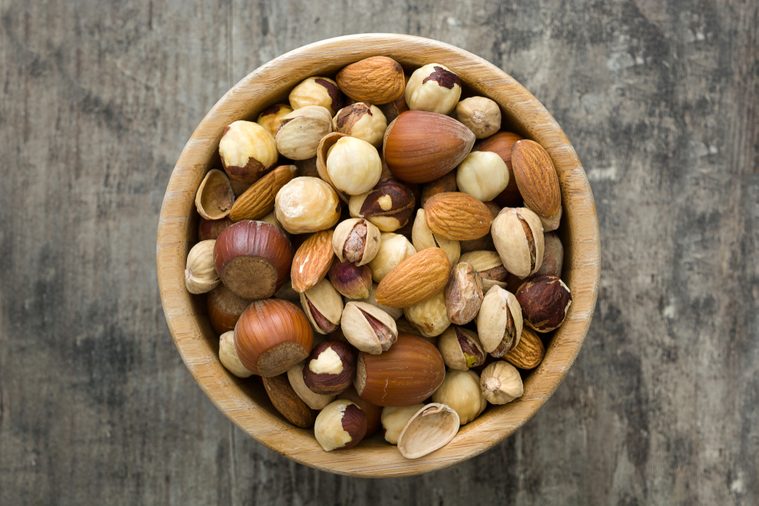
Nuts
If nutritionists could beg you to eat only one snack for the rest of your life, nuts might just be it. Their health benefits are bountiful: Harvard researchers discovered that women who regularly ate nuts (about a handful five times a week) were 20 percent less likely to develop type 2 diabetes than those who ate them less. In research on 119,000 people published in the New England Journal of Medicine, people who ate one ounce of nuts a day (that’s about 25 almonds or 50 pistachios) were less likely to die over a 30-year period than people who didn’t eat them at all. Study authors believe that the high levels of healthy unsaturated fats in nuts may lower cholesterol and inflammation, reducing the risk of heart disease, cancer, and more. These are the 5 healthiest nuts you can eat.
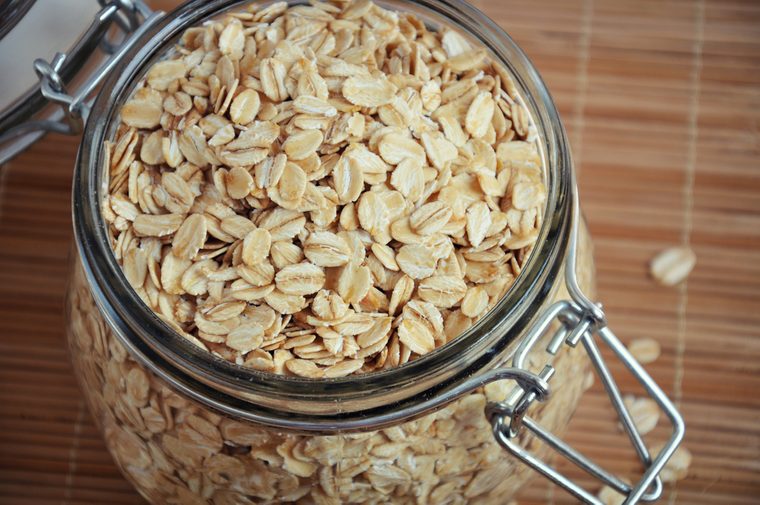
Oats
Maybe you eat oatmeal for breakfast because it’s filling, because you’ve heard it’s high in fiber, or because it’s easy to zap in the microwave. But your morning bowl can also reduce your cholesterol levels, lower blood pressure, and help prevent diabetes. Oat bran is high in a kind of soluble fiber called beta-glucans. Eating 3 grams of beta-glucans a day (about the amount in one cup of cooked oat bran) can reduce blood cholesterol by about 5 percent. A Minnesota study found that people who ate 5 grams of soluble fiber a day (from 1.5 cups of oatmeal and an oat-based snack) showed a significant reduction in blood pressure compared to people who ate little soluble fiber.

Olive oil
After you read about olive oil’s potent health benefits, you’ll find reasons to drizzle it on everything, including other healthy foods. One study found that adults who consumed about 2 tablespoons of virgin olive oil daily for just one week had lower LDL cholesterol and higher levels of antioxidants in their blood. The antioxidant chemicals hydroxytyrosol and oleuropein in olives and olive oil may work together, according to laboratory studies, to help protect against breast cancer. And olive oil helps decrease inflammation, which contributes to arthritis, heart disease, and many other health problems.
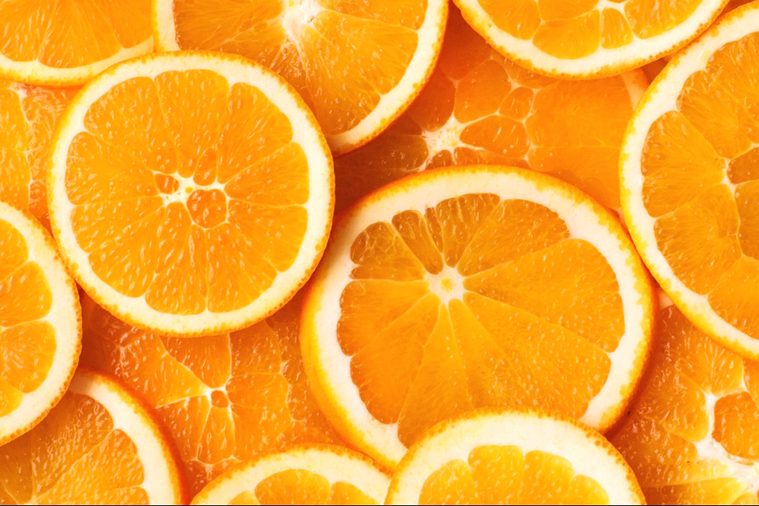
Oranges
Sure, oranges’ high vitamin C content may help keep colds at bay, but that’s not all these citrus fruits can do for your health. Oranges contain a host of plant pigments that may help to prevent or impede tumor growth. The carotenoid beta-cryptoxanthin may help prevent colon cancer. According to a French study, orange juice can help lower blood pressure thanks to the effects of hesperidin, a flavonoid that comprises 90 percent of total flavonoids in OJ. Oranges also contain a fair amount of pectin in the membranes between the segments of the fresh fruit. The soluble dietary fiber helps control blood cholesterol levels. Here are some more foods to eat to lower blood pressure.

Pasta
Oh, pasta: It’s so easy to love you. But just because mainlining heaping platefuls of carbonara aren’t good for your waistline doesn’t mean eating pasta in normal portions isn’t a healthy meal choice. A recent study found that kids who ate pasta were healthier than kids who didn’t. Whole grain pasta, which contains about three times the fiber of white pasta, won’t cause dramatic blood sugar swings and is a great way for people with diabetes to have their carbs and eat them too. Whole grains can also reduce colon cancer risk. A Swedish study found that people who consumed more than 4.5 servings of whole grains daily had a 35 percent lower risk of colon cancer than those who ate less than 1.5 servings of whole grains a day. Here are some healthy food swaps you’ve never thought to try.
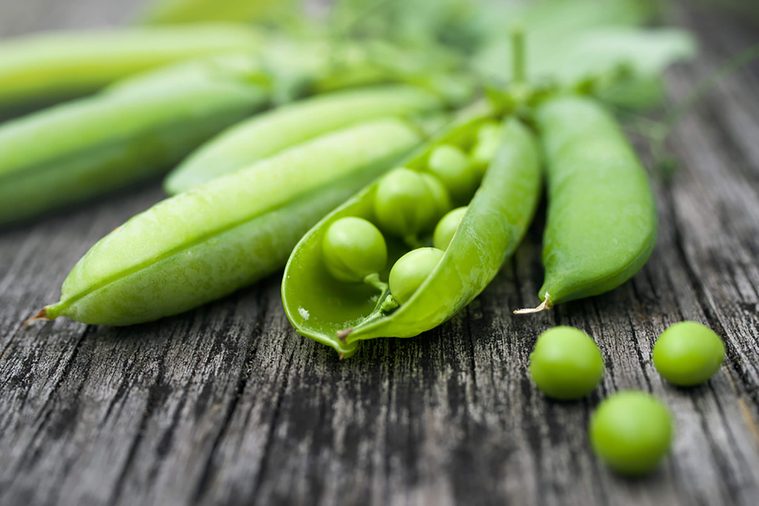
Peas
Mom begged you to eat them for good reasons. Green peas are lower in calories and fat than other high-protein foods: A half-cup serving contains about 60 calories and 4 grams of protein. A study in the International Journal of Cancer showed that daily consumption of green peas along with other legumes lowers the risk of stomach cancer. Peas also contain lutein, the plant chemical linked with lowered risk of macular degeneration.
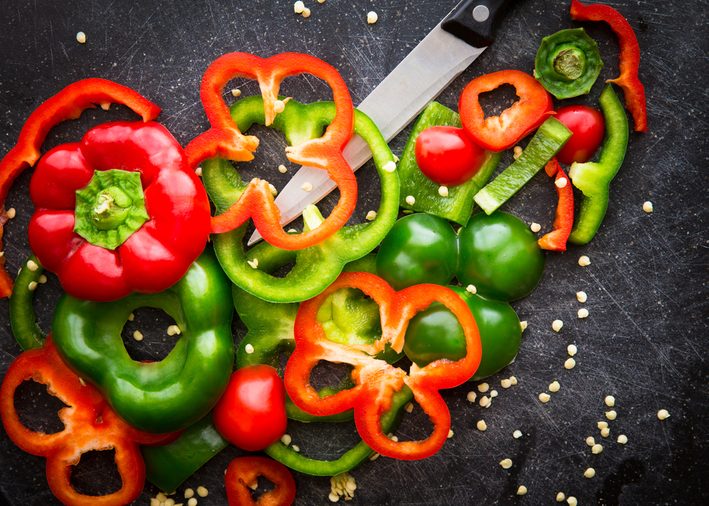
Peppers
Did you know that volume for volume, peppers are a better source of vitamin C than citrus fruits? Deeply colored peppers are high in bioflavonoids, plant pigments that help prevent cancer. Their beta-carotene and vitamin C can prevent atherosclerosis. And their vitamin C and other antioxidants not only bolster the immune system, but also contribute to healthy bones, teeth, hair, and skin. Here are some more vitamin-rich foods you should be eating more of.
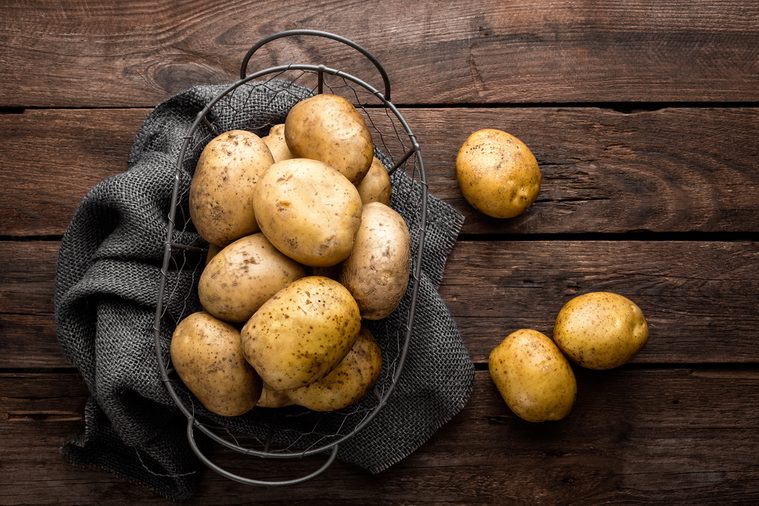
Potatoes
We often think of potatoes as fattening, because we usually consume them in processed forms high in fat and salt. But on their own, potatoes are surprisingly nutritious and low in calories. A medium baked or boiled potato has between 120 and 150 calories, a small amount of protein, and almost no fat. Potato skins are rich in chlorogenic acid, a phytochemical that has anticancer properties. Potatoes are low in sodium and rich in potassium, which means they’re an ideal food for fighting hypertension.
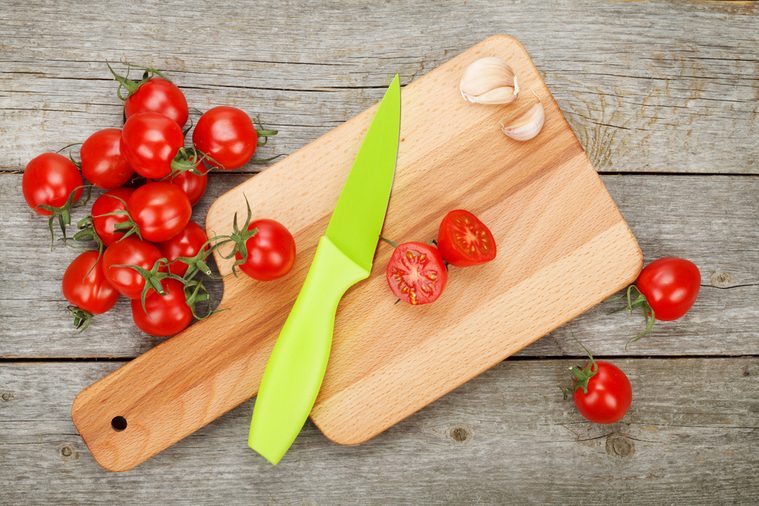
Tomatoes
Every time your teeth sink into this salad staple, you’re protecting your body from heart disease and cancer. When heart disease patients took 7 milligrams of lycopene daily, their blood vessels’ response to nitric oxide, which helps them dilate and maintain healthy blood flow, improved by 50 percent compared with those on a placebo. Over time, the function of the tissue lining the heart’s blood vessels was just as good in the lycopene-consuming patients as in healthy people. The amount of lycopene is the equivalent of about two raw tomatoes or a third of a cup of tomato juice a day. The jellylike substance surrounding tomato seeds is high in salicylates, which have an anti-clotting effect on the blood. And a well-known Harvard study showed that men who regularly ate tomato-based foods had lower rates of prostate cancer. Here are some more foods all healthy men need in their diet.
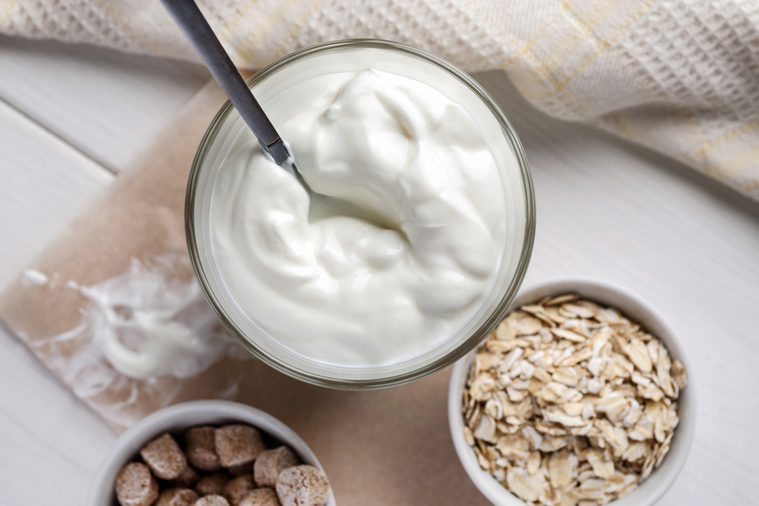
Yogurt
Let us count the ways our bodies benefit from yogurt. Its probiotics bolster the balance of good to bad bacteria in the gut, which may suppress the growth of disease-causing germs and processes in the body. An excellent source of calcium and phosphorus, yogurt can help strengthen bones. One additional serving of yogurt a day is linked with an 18 percent lower risk of type 2 diabetes, a large study showed. Yogurt’s probiotics may help improve insulin sensitivity and reduce inflammation, but more research is needed to understand the exact mechanisms. Next, check out the healthiest foods you can possibly buy at the supermarket.